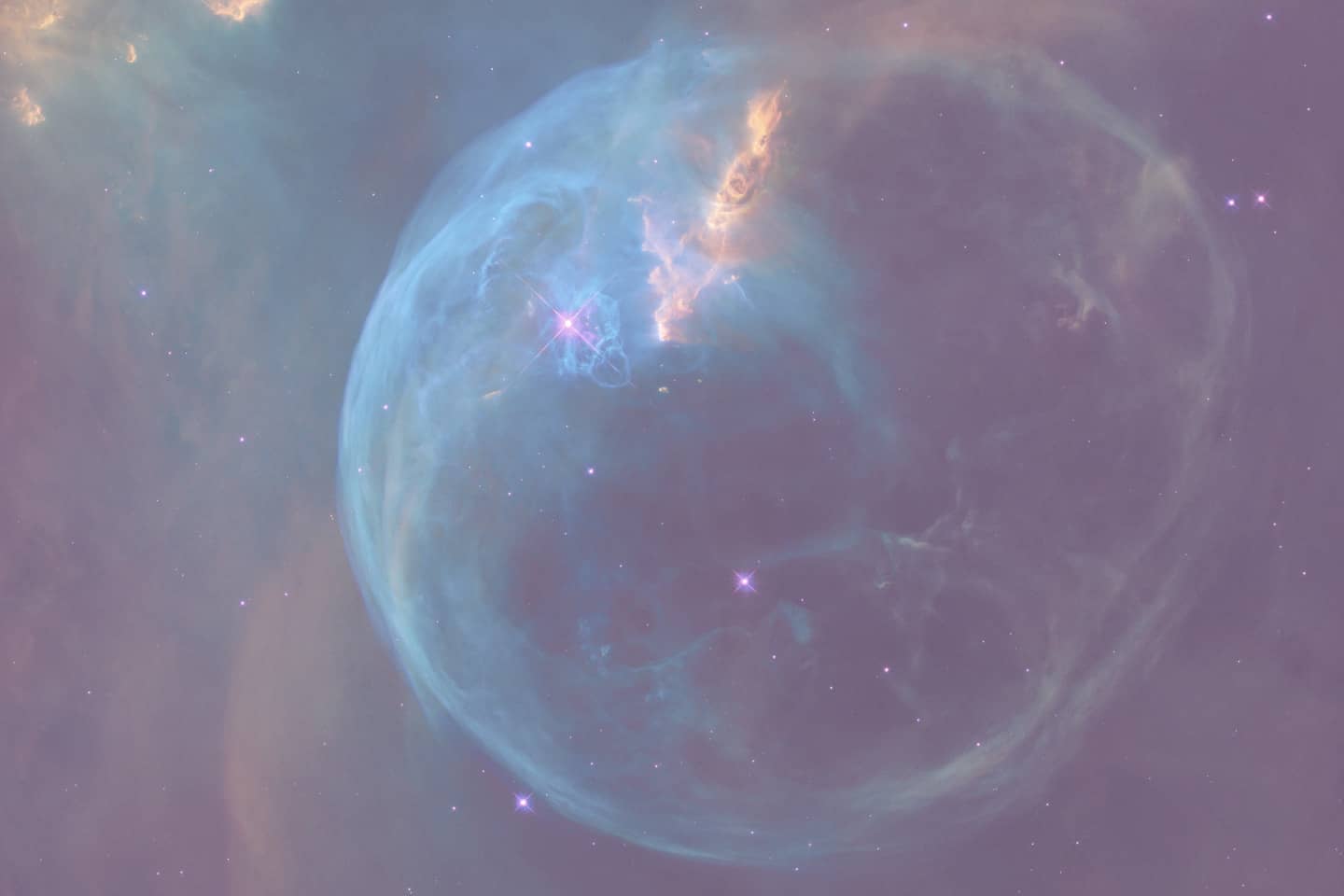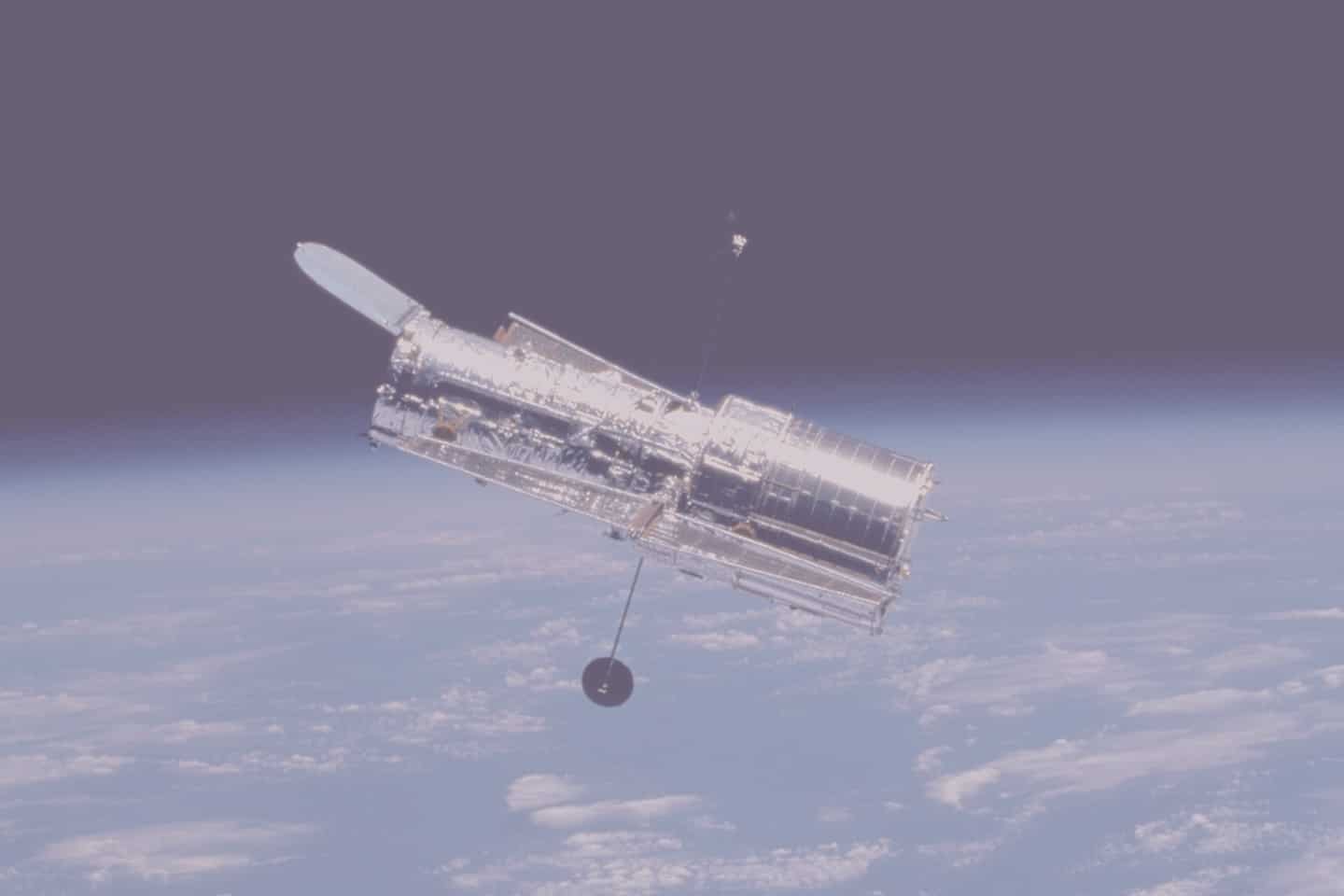Space and Time, a Matter of Faith
Discover the compatibility between science and God in understanding the origin of the universe. This article explores the cosmos of science, faith, and the Big Bang's singularity.

An Intersection Between Science and Faith
People often think that science and Christianity are somehow at odds with each other. I disagree! They can and do coexist.
First, this article is not trying to persuade or prove to anyone that God is real or that you should follow Christ. Rather, I realize that everyone has their own beliefs, and I respect that God has a unique plan for each person.


Generally speaking, science is observing and trying to understand what’s happening in our natural world. It uses evidence from experiments and observations and the end goal is to explain and make sense of what’s going on. It’s based on logic and evidence. Science helps us understand the world that we all live in. Christianity on the other hand, is a faith-based belief that centers on the belief in the triune God and the works of Jesus Christ. In simple terms, it is a way of life based on the authority of what God has revealed in the Bible and the relationship He has extended to His children.
A person can be both a believer in God and a scientist. Many scientists throughout history have been followers of Christ, and their belief in God has not hindered their ability to do scientific research or make discoveries.
I think the biggest danger is that some people believe that science has proven God does not exist. But this incorrect belief shows either a lack of understanding of science or a lack of understanding of God as revealed in the Bible.
God is outside of space and time. Because of this, God is not and cannot be within the scope of science. Science is limited to the study of the natural world and is not equipped to address any questions outside of the natural world — Including the existence of God. Just as a hammer isn’t exactly capable of being a backpack, science is not meant to or capable of addressing questions that exist outside its scope of function. Science cannot reject or accept the existence of God, as it is not equipped to address this question.
Any argument saying that science disproves the existence of God is an unscientific argument.
On the other end, for a person to believe in a scientific theory requires a level of faith, in a similar way as Christianity does. And to believe in an unobservable scientific theory, well that requires a fairly large leap of faith. The main difference is that a leap of faith means that you must believe in something even though there’s very little evidence or even zero evidence at all to support the claim being theorized. To accept a scientific theory and then reject God because of a lack of tangible evidence, is applying one set of criteria to areas of science and another set of criteria to God. This is a contradiction and is not scientifically objective. Rather it is a conflicting set of subjective standards.
Personally, I look at the world around me and see observable evidence of His existence and tangible proof of His work. While you may not see anything more than a tree or a star, it is important to evaluate all beliefs and ideas with a consistent set of standards, whether they come from the realm of science or the realm of faith.


God is Beyond Touch
One reason some people believe that science and Christianity are incompatible is that God is unobservable. According to the scientific method, things must be observable in order for them to be studied and understood. This means that something must be able to be seen, touched, or in some way objectively sensed in order to be considered part of the natural world and studied by science.
Not only that, but there is also a requirement that any observations or data gathered must be measurable through objective means. This includes using various tools to obtain quantifiable data, and analyzing that data using objective mathematical/statistical methods to draw valid conclusions.
The thing is that God is an infinite and spiritual being who exists outside of both space and time. Because God exists outside of space and time He therefore can’t be detected by scientific tools or scientific methods that are limited to our reality. Infinity is a mathematical concept that is used to describe something that is endless and/or limitless and it cannot be directly observed or measured. This means that because God transcends the realm of space and time and He is infinite, God also transcends science.
Keep in mind, this is how the one true God has been described for 1000’s of years. Not only has He not changed as a ploy to exist outside of the realm of science and unfalsifiable by science,Bud God is 100% immutable Meaning that He cannot change. Where as science on the other hand, is a constantly evolving human construct that is limited by our perception and understanding of reality.
None of that means that science and Christianity are incompatible. But it does mean that there is a huge fundamental difference in the way that each view the world and the way that they each seek to understand it. While science relies on observation and evidence, the essence of Christianity is based on faith and beliefs that cannot be observed or proven through scientific methods.
The Big Bang Theory and the Concept of the Singularity
A handful of scientific theories exist which try to explain the origin and overall evolution of our universe. The most widely accepted of these theories is the well-known Big Bang theory (not the TV show!)
The Big Bang theory is that our universe began as a singularity — A hypothetical non-dimensional region of spacetime that isn’t a place in space or time, but rather the absence of space and time. Let me point out real quick that this singularity is not a local singularity at the center of a black hole, rather this singularity is the singularity that represents the complete(ish) origin of the universe.


It’s a bit conceptual and difficult to grasp, but this singularity is defined as a single point, with no expanse in any direction. The thing is that In the physical world, it is not possible for any object to have both zero volume and non-zero mass. But, because the singularity had zero volume and non-zero mass, the singularity had an infinite density as well as an infinitely high temperature. The conditions within the singularity were so extremely extreme, that the laws of physics as we understand them completely break down! Because of these different laws, our normal comprehension of time and space no longer apply.


Formation of the Quark-Gluon Plasma
Though it’s just theoretical, the idea of a singularity is the most important part of the Big Bang theory. Basically, it is believed that within this singularity, a quark-gluon plasma was created due to the infinite density and high temperature. What is a quark-gluon plasma you may ask! It was the highly energetic and symmetrical state of matter that contained the fundamental building blocks of protons and neutrons.
At some point in the “time” beyond our normal comprehension, the singularity began to expand and cool, and the quark-gluon plasma within it began to take on more complex structures. Basically, the quarks and the gluons within it combined to form protons and neutrons, which then “later” fused together to form the first atomic nuclei. These nuclei combined with electrons to form the first atoms, such as hydrogen.
Based on this theory, this process continued and led to the formation of all the galaxies, stars, planets, Earth, the precise conditions required for life to exist on Earth, Lucy, you, and me. All the matter present in the universe today is the result of this ongoing formation process from the original single point. If we could trace the evolution of everything backward in time, we would eventually reach the quark-gluon plasma within the singularity.
It’s important to know that while scientists have observed the expansion of the universe, the singularity is unseeable. But if correct, the matter contained within the singularity is necessary for the creation of the matter we see in the universe today.
But here’s the thing, the Big Bang theory offers an explanation for the origin and evolution of the universe, but it does not answer how the singularity, with its infinite density and high temperature, created the quark-gluon plasma out of matter that the quark-gluon plasma had yet to create. Science has not been able to answer the question of the creation of the ingredients required in the creation of the universe. And the inability to answer that question is why this belief requires a leap of faith.
Breaking the Boundaries of Space, Time, and Matter
Both God and the singularity are seen as the source of all that exists and the cause of all creation in the universe. They are both all-encompassing, infinite, and not bound by any limitations found within the natural world of our reality.
God exists outside of space and time and is the creator of all matter. He is not bound by the laws of physics and has the power to intervene in the natural world in ways that I would argue won’t ever be explainable by science. God demonstrated this power by sending His Son, Jesus, to Earth to restore the relationship between God and humanity.


Whereas, the scientific view, as represented by the Big Bang theory, is that the singularity exists absent of both space and time and is the creator of all matter out of the matter it had yet to create.
Within the singularity, the laws of physics break down. Whereas God is not bound by the laws of physics. And while the singularity’s infinite density and high temperature represent a level of complexity and mystery that we cannot fully grasp, Both God and the singularity are beyond human understanding and comprehension. Belief in either God or the singularity requires a leap of faith and a willingness to accept things that lie beyond the limits of our knowledge.
But, rejecting God because He exists beyond the dimensions that define our reality is applying a set of criteria that isn’t applied to the singularity in science. Nor can science reject or accept the existence of God, as it does not have the tools or methods to study or test the existence of such a being.
I said that the purpose of this article is not to convince or persuade you that God is real or that you should follow Christ and I stand by that. But, regardless if you are an atheist or not, I encourage you to approach your views with an open mind. Open-mindedness is a virtue that helps all people learn and grow and is a more rational and intellectually honest position to hold. Claiming that God does not exist, when you have no objective or subjective proof, or any ability to gather and analyze evidence of your claim, makes the claim, a lacking claim. I won’t argue eyewitness accounts and historical records of the resurrection of Jesus as objective proof, I’m sure you already know them. However, I experience a relationship with God, which is subjective proof. Not having a relationship with God is not subjective proof.
The absence of a relationship with God can’t be evaluated as objective or subjective evidence that He does not exist. Rather, it can only be concluded at face value, that If God exists then God chooses to reveal Himself to who He chooses, and that lack of a personal relationship with God does not prove God’s non-existence.
In Christianity, we believe that God has revealed Himself in the Bible. Even if a person has only read the book of John, and still remains in disbelief, despite my sadness, I will continue to respect them and show them the compassion and understanding they deserve as God’s image-bearers.


The Evolution of the Idea of the Universe’s Evolution
In the past, scientists believed that the universe had existed without change forever. However, experimental evidence provided by Edwin Hubble showed that the universe was expanding. Georges Lemaître used this evidence to trace the evolution of the universe backward in time. He calculated that the farther back in time we go, the smaller the universe had to be.
In a 1927 paper, Lemaître proposed the concept of the “primeval atom,” which was the precursor to the Big Bang theory. His argument was that the universe began as the singularity and that it has been expanding ever since.
Initially, Lemaître’s theory was met with rejection as many scientists couldn’t accept the idea that the universe had a beginning. But, over time, his theory did gain traction. And is now the most widely accepted explanation that we have for the origins and evolution of the universe.
Today, those who reject that the universe had a creator, place themselves in a very similar position to those who rejected the fact that the universe did have a beginning. In both cases, rejecting the existence of something beyond their understanding or ability to explain is not a scientific approach.
Lemaître believed that his scientific discoveries were a way to understand and appreciate the wonders of God’s creation. He saw no conflict between his scientific work and his faith, and he believed that they could be complementary ways of understanding the world. I think people today would find that completely fascinating that he saw no conflict.
Ancient Text, Modern Discoveries
Lemaître’s science proved the first three words of the Bible. The very three words that science had fully rejected, “In the beginning”.
The Bible was not written to be some comprehensive guide to the universe. However, when you consider that the Bible describes God as a being who exists outside of space and time and is the creator of all matter. I find it fairly interesting that our modern scientific understanding seems to theorize a creator with a very similar description.


By no means am I saying that the singularity is God! Rather, I’m simply pointing out the coincidence that suggests that the Bible, the collection of books that includes some of the oldest written texts known to us — which science dates back as far as 3,400 years ago — may be much more in line with the underlying fabric of our reality than many people realize or care to admit. It could be argued that fundamental aspects of modern science are only recently starting to catch up with the words in this ancient book.
As our understanding of the natural world continues to deepen, I am confident that we will also continue to discover that the Bible is more consistent with the nature of the universe and scientific knowledge than many people believe.
The Big Bang theory does not answer the question of the true origin or the cause of the universe. Nor does the Big Bang theory exclude the possibility of God as the ultimate creator of the universe. And though it may seem that science is trying to reject the existence of God, this is 100%, not the case. Rather, it is only people who can reject God and some of those people happen to be scientists.
Science can’t reject God, because He exists beyond the dimensions that define our reality. Science is a method of understanding the natural world and it can’t make claims about the existence or the non-existence of God. For science to be scientific, it must be based on evidence and the scientific method, which involves observing, testing, and verifying theories. God, who exists outside of space, time, and matter, is not within the scope of science which does not have the tools or methods to study or test the existence of such an infinite being.
So, in reality, God and scientific theories are both matters of faith. The difference is that Christianity is not a blind faith, it is not a leap descending into darkness, but an ascension into the light of Christ.
I do hope that one day you will fully grasp Lemaître’s science and come to the belief that: In the beginning, God created the heavens and the earth.